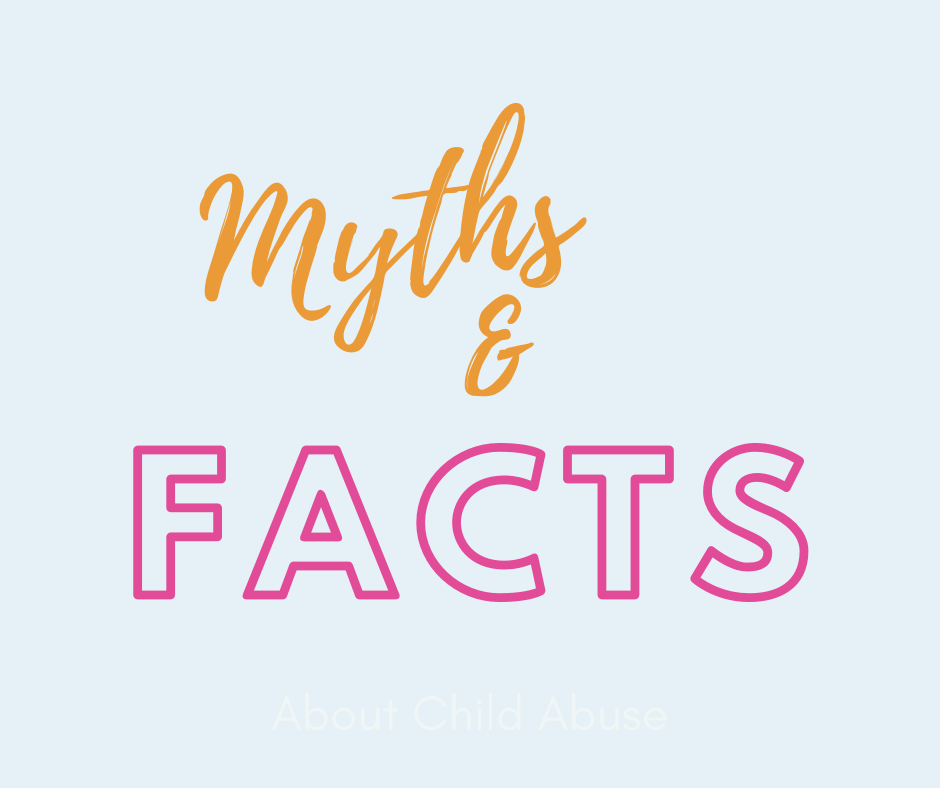
1 in 10 children will experience sexual abuse before the age of 18. In Snohomish County alone, that means that thousands of children experience abuse every year.
Here are 5 common myths and misunderstandings of child abuse and their truths. You can help prevent child abuse by breaking down these myths and sharing facts with your community.
MYTH
Children are only victimized by creepy strangers.
FACT
90% of all child sexual abuse victims know their abuser, often being a family member, friend, parent, teacher, or other caregiver. Over 90% of victims who experienced child maltreatment were victimized by one or both parents. After parents, the most common perpetrators included foster parents, relatives, neighbors, and daycare providers.
MYTH
Children lie about being abused.
FACT
Less than 10% of all child sexual abuse allegations are false. Always believe the child if they are reporting any form of abuse. Learn more about what to do when a child discloses abuse. (LINK)
MYTH
Children always tell someone when they are being abused.
FACT
Research shows that many child victims delay or never even disclose the abuse they have experienced. There are so many reasons children do not disclose abuse, a few of these reasons include: abusers often make children believe it is “normal”, they may be threatened with further abuse if they tell someone, they may not know how to express what they have experienced, or they assume no one will believe them.
MYTH
There are always visible signs that children are being abused.
FACT
Many children who experience abuse will not display physical signs. Child abuse can be physical, sexual, emotional, or neglect, many of which do not leave clear physical markings. It is important to also watch for behavioral changes, an increase in anxiety and fear, decreased school performance, and a regression in development. Learn more about the warning signs of abuse. (LINK)
MYTH
There are no long-term effects of abuse or neglect.
FACT
Children who experience child abuse, neglect, or sexual assault are more likely to become involved in criminal activity, become substance dependent, and develop long term medical and mental health issues. Medical and mental health professionals can provide support and services that can help many victims of abuse. Those who seek therapy and get support are much less likely to end up experiencing the long term negative effects and can go on to heal from abuse.
If you or someone you love has experienced abuse, Dawson Place is here to provide safety, justice, and healing. Learn more about our services. (LINK)
Sources: National Children’s Advocacy Center, Childwelfare.gov, childhelp.org
